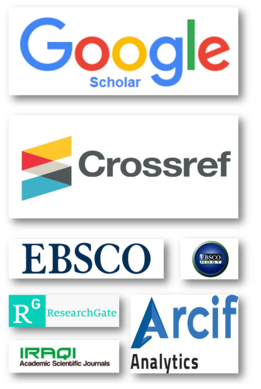THE TRUTH-CONDITIONAL
Abstract
Evidentials are those means by which any alleged fact
whose truth is investigated is established or disproved.
They indicate the source of evidence for the reality of
a proposition. Languages differ greatly with respect to
the sources of information they mark grammatically. In
general, there are three subtypes of evidentiality: direct
evidentiality, based on first-hand sensory evidence; indirect
evidentiality, based on second- and third-hand evidence;
and inferential evidentiality. The aim of this paper is to test
the truth-conditional content of evidentials in Shabaki. The
problem the paper will focus on concerns the interaction
between evidentials and conditionals, negation, anaphors,
tense and aspect. The corpus is based on the data
excerpted from everyday communication in Shabaki. This
language is classified as a modern Iranian northwest of
the Indo-Iranian family spoken at north-east and south
eastplateaus of Mosul, Iraq. The research questions
include: Can evidentials be semantically embedded under
conditionals and negation? How does evidential content
affect anaphoric relations? And, do evidentials block
Abbas H J
Sultan*
THE TRUTH-CONDITIONAL
CONTENT OF EVIDENTIALS IN
SHABAKI
anaphora in a way similar to modals in the
absence of additional modal operators?
The paper argues that evidentials are
not a part of propositional (or at-issue)
content. They can neither be semantically
scoped under conditionals nor under
negation. Besides, they do not behave
like ordinary modals with respect to modal
subordination. Modal subordination refers
to the phenomenon of a modal being
interpreted semantically subordinate to a
modal in a preceding clause and it is best
illustrated by anaphoric dependencies. It
has been found that Shabaki can encode
the three principal types of evidentials.
Evidentials in Shabaki differ from modals
in terms of their semantic behavior
with respect to pronominal anaphors.
They block anaphora in the absence of
additional modal operators


